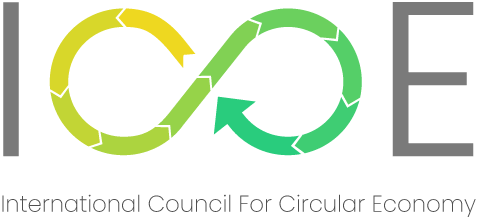Name of CEO/Founder: Ivan Atelšek
State | Country: Velenje, Slovenia
Date of incorporation: 1950
Link: https://www.gorenje.com/
a Vision for the future
Company’s ambitious plans saw a substantial setback last year with the onset of the global economic crisis. New measures were taken to secure Gorenje’s existence and further development. Professional approach and immense effort resulted in a timely and responsible reaction to the changed market conditions, allowing the company to retain the confidence of the consumers and even boost market shares. Everyone at Gorenje believes that after the crisis, high level of innovation and development activities are the only way to success. Gorenje is more than a brand; it is a junction of people who believe in their own creative power and share a clear vision of the future – for the next 60 years of creativity.
embracing sustainability in home appliances
INTRODUCTION
Gorenje, now part of Hisense Europe, has a long-standing commitment to environmental and social responsibility, dating back nearly 75 years. As the first company in Slovenia to voluntarily join the EMAS (Eco-Management and Audit Scheme), Gorenje has consistently strived to meet high environmental protection standards. This case study examines Gorenje’s efforts in sustainability and circularity, focusing on its environmental management systems, resource efficiency, and commitment to responsible practices.
Environmental Management and Certifications: Gorenje has demonstrated a strong commitment to environmental management through various certifications and initiatives:
- EMAS Scheme: Gorenje was the first company in Slovenia to voluntarily join the EMAS scheme, showcasing a commitment to exceeding environmental protection standards.
- ISO 14001: The company actively adjusts to the requirements of the ISO 14001:2015 standard, demonstrating its dedication to continuous improvement in environmental management.
- EcoVadis Silver Award: Hisense Europe, including the Gorenje brand, received the EcoVadis Silver award for 2024, placing them among the top 11% of companies globally assessed for sustainability. This award reflects Gorenje’s performance across environment, labor & human rights, ethics, and sustainable procurement themes.
Resource Efficiency and Environmental Performance:Gorenje has made significant strides in improving resource efficiency and reducing its environmental impact:
- Reduced Resource Consumption: Gorenje has achieved significant reductions in water usage (-83.6%), compressed air (-28.3%), and natural gas (-44.7%) in its manufacturing processes, relative to the base year 1997.
- Waste Reduction: The company has drastically reduced the amount of hazardous waste (-92%) and disposed waste (-99.6%) compared to 1997.
- Energy Efficiency: Gorenje’s appliances are designed for energy efficiency, with today’s washing machines using 60% less energy and 70% less water than appliances from just a few years ago.
- Carbon Footprint: Gorenje is actively monitoring and managing its carbon footprint, with a reported carbon footprint of 10.93 kg CO2/product in 2017.
Circular Economy Initiatives (Limited Information):While specific details on Gorenje’s formal “circular economy initiatives” are limited in the provided search results, there are indications of related activities:
- Product Development: Investment into new appliance development was stepped up to EUR 33.3 million, which accounts for 2.5 percent of total Gorenje Group revenue.
- Sustainable Product Design: The company emphasizes the importance of sustainability in product design and development, although specific circular design strategies are not detailed.
Broader Sustainability Efforts:Beyond environmental performance, Gorenje demonstrates a commitment to broader sustainability principles:
- Corporate Social Responsibility: Gorenje consistently applies the fundamental principles of corporate social responsibility, focusing on fair treatment of employees, ethical operations, responsible environmental management, and community engagement.
- Employee Training: Gorenje invests in employee training and education, with a focus on developing innovativeness, leadership skills, and communication skills.
CHALLENGES AND OPPORTUNITIES:
- Limited Public Information: Detailed information on specific circular economy initiatives (e.g., remanufacturing, closed-loop systems) is scarce in the provided search results. This presents a challenge in fully assessing Gorenje’s circularity efforts.
- Further Development of Circular Strategies: While Gorenje has made strides in resource efficiency and waste reduction, there is potential to further develop and implement comprehensive circular economy strategies, such as designing for durability, repairability, and recyclability.
Gorenje has demonstrated a strong commitment to environmental sustainability through its long-standing participation in the EMAS scheme, ISO 14001 certification, and continuous efforts to improve resource efficiency and reduce waste. The EcoVadis Silver award further validates Gorenje’s commitment to responsible business practices. While specific information on circular economy initiatives is limited, the company’s focus on sustainable product design and resource management provides a solid foundation for future circularity efforts. By continuing to prioritize environmental and social responsibility, Gorenje can further enhance its sustainability performance and contribute to a more circular economy.


